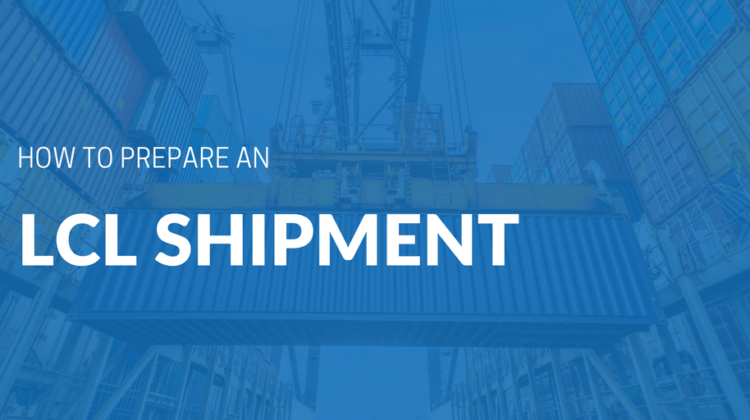
World trade has seen a remarkable journey after the advent of globalisation and the shipping industry was leading the front. It is the backbone of today’s trade and commerce. However, with passing time, shipping channels have gone into more progressive and expansive supply chains.
Subsequently, the demand of the consumer increased as now they want to receive their products fast and securely. Industries are becoming more responsive to customer needs and to stay at the front of the competition, they are enforcing extensive marketing policies. Among the ocean freight, FCL (Full Container Load) and LCL (Less Than Container Load) are working out the transportation and logistics through the sea- route. The choice of shipment i.e whether FCL or LCL depends on various aspects such as volume, quantity, costs, conveyance duration, type of goods, etc.
What is LCL Shipping?
The term LCL stands for “less-than-container-load”, it is the process of shipping a low volume load that takes up less than a single ocean container. The cargo is consolidated into a shared container with mutual agreement. Additionally, in LCL shipping, the cargo loads are not large enough to fill a standard 20 ft or 40 ft freight container.
LCL is beneficial in leaner supply chains. A small business can ask for a limited size in the container as per its requirement. It can be a cost-effective option for specific combination goods, market needs, order quantity and carrier cost. There are two types of LCL shipments that are very much popular or in operation-
- LCL in Pallets- Under this type of shipment, the goods are placed in pallets and protected with straps, stretchable wraps and so. The cargo in pallets is usually efficient in easy handling of goods, safety and security, and also prevents goods damage.
- LCL in Boxes- In this, the goods are carefully packed in stackable boxes, sometimes it depends on the nature of the products as well. It is slightly cheaper compared to pallets. However, LCL cargo passes through multiple junctures, so choose your option accordingly without compromising the security of your cargo. LCL takes more transit time than FCL as it stops at multiple junctures during the whole journey.
Interesting Things You Didn’t Know About the LCL Shipment
LCL is also known as a “groupage” shipment, as it is formed by a small group of individual packages. This mode of transport is especially for those who don’t have to buy bulk goods or stock that can fill a full container. Instead of paying for the full container, you only pay for the space that you used inside the container. Here are a few important things that generally you did not know of LCL.
Preferential Treatment
LCL shipments are given more preference than shipments. This is because the LCL consolidated container is being charged at higher freight rates compared to the general cargo of FCL. Also, LCL generally consists of volumes and is shipped to various ports.
Reduces Inventory and Warehouses Costs
LCL shipment helps in curtailing warehousing costs. Being smaller in size and more frequent movements, the overall expenditure on warehousing and inventory get reduced. LCL shipping contributes to an effective lean supply chain.
LCL Shipment is an Alternative To Air Freight
It usually consolidates low-volume orders from several parties to export at multiple locations as per requirement. If you don’t have the requisite funds to lay for the air freight, LCL is the second to the best option. It enables you to ship low volume cargo. The custom rates are also lower compared to air freight.
Higher Risk of Damage and Loss
LCL cargo carries a higher risk of damage or loss of goods, primarily because there are several parties involved with handling the cargo. The container has multiple goods and if there is something heavy goods or any type of liquids, it increases the chances of damaging the shipment. Therefore, if you are opting for LCL cargo, make sure you have insured your goods.
Sustainable and Economical Option
Post globalisation, the world has become a universal family and the concept of sharing is becoming more prevalent and common. It is better for both nature and the economy. Thus, LCL cargo is making more sense in this regard, as several stakeholders are involved in the shipment which makes room for mutual sharing and efficiency for all. Time has changed, bulk production and mass shipment are both extremely undesirable and unnecessary in the modern sustainable society.
Nonetheless, the choice of shipment primarily depends on the needs. LCL can be the most suitable option when it comes to a lean inventory, particularly for small and medium scale businesses. Each shipping method has its own advantages and disadvantages so one should choose any according to the requirements of his business. However, in the era of sustainability and environmental protection, LCL shipment seems to prosper more.

